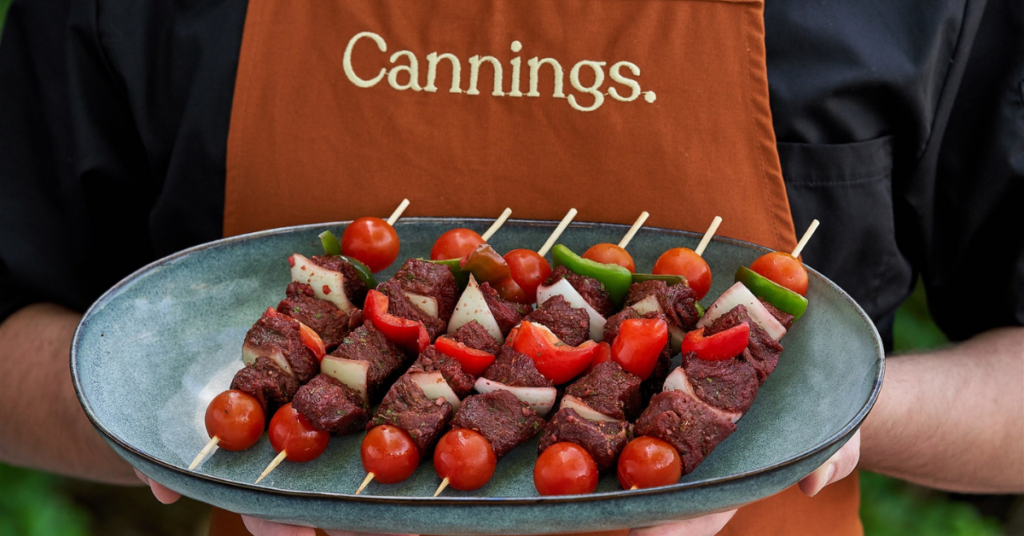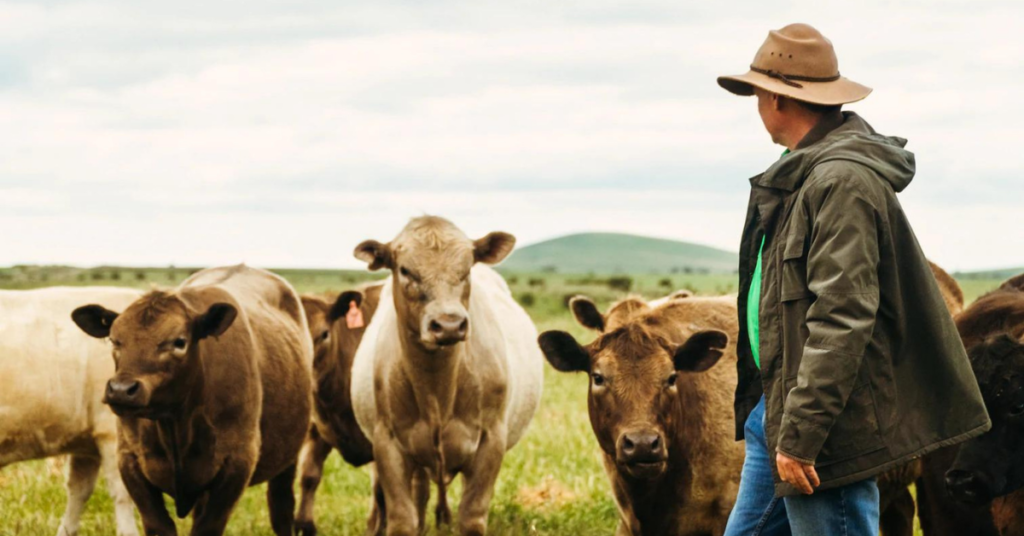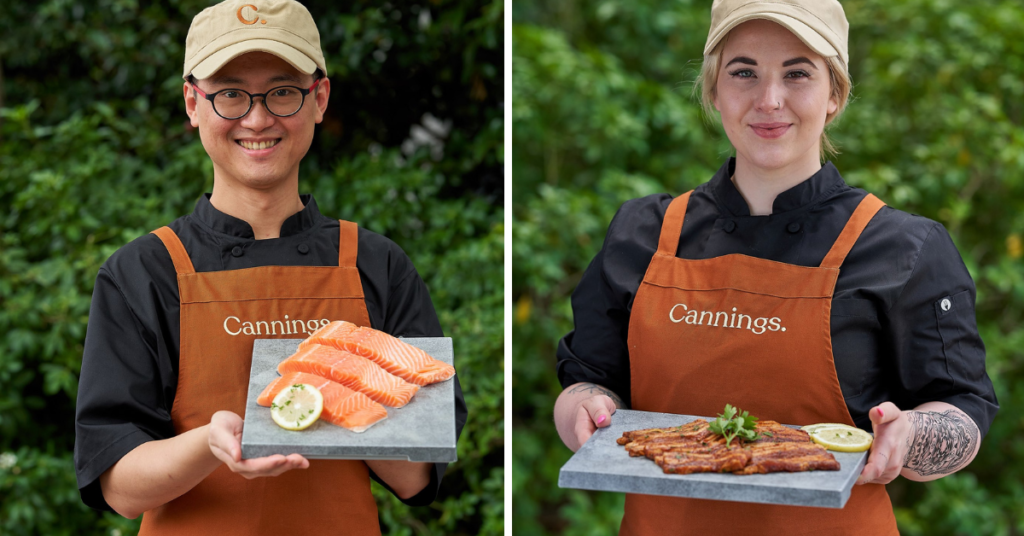Cannings are butchers with a conscience. They supply their local customers with nothing less than the highest welfare, free range produce available. Integrity, transparency and purpose are the foundations of their business. Owner, Sam Canning, has always been empathetic towards animals, his journey progressing from being a vegetarian in his teen years to fuelling that empathy into positive change in the meat industry. Guided by their values and commitment to what is right, Cannings are here to provide Melbournians with good food whilst raising the industry bar and improving animal welfare standards.

Image Source: Cannings
In celebration of their certification, we sat down with the team to learn about the standards that underpin their business, their vision for a better industry, and how they’re making a difference Melbourne-wide.
To start, could you tell us a bit more about Cannings and the values that inform your operations?
Our first store was set up in Hawthorn with the focus of solidifying a customer base and making them all really happy so that they would want to come back. We quickly realised that what we had created was something that the local community really wanted, and that it had the potential to go much further. We’ve always gone out to all of the farms we get supplies from to ensure we are satisfied with how they’re doing things and that they meet our standards. If we’re not satisfied we don’t partner with them. This was especially important as our scale started to increase when we opened more stores. In the end, everything we do always comes back to care; it is the mantra of Cannings. It is what the business was founded on.
“If you care about the produce, care about the welfare of the produce, care about how you’re serving the customer and the quality of the work, you can only have a positive experience for yourself and your customers.”
— Sam Canning, Owner
At the risk of sounding like we’re writing a bio for an internet dating website, here are some of the key values which run through our business and helped to get our certification over the line:
- We source produce from the regions most local to our stores.
- We are incredibly rigorous when it comes to our produce and/or farmer selection.
- We offset all of our unavoidable carbon emissions through domestic and international tree planting and reforestation programs.
- We donate monthly to animal welfare and environmental organisations and charities to help give back to the Animal Kingdom that has, undoubtedly, been incredibly generous to us.
- In our traditionally male-dominated industry, we have a growing number of female team members who are apprentices, trade qualified butchers, managers, and leaders in the organisation.
Cannings was founded on such good business foundations, so why did you want to certify as a B Corp?
We wanted to be a B Corp because it’s one of the only ways we can prove that we are a genuine and honest business with a good moral compass.
Strangely enough, we like to be held accountable to our stakeholders. We like to honour our commitments and we are always looking for ways to improve ourselves.
However, we’ve found it difficult to structure and benchmark the contribution our values are making. B Corp is our True North, keeping us calibrated and focused on the greater good. Our values and purpose have been unwavering since 2010, so achieving certification as a B Corp was more a process of refining, consolidating and structuring these values, rather than having to change our business to fit the B Corp standards.

Image Source: Cannings
You said since 2010 Cannings has cared about how they carry out business. What would you like to see become the norm within the meat and butcher industry?
In terms of business practices, we would like to see more integrity and honesty within our industry — more butcher businesses challenging their suppliers, asking the pointy questions, and requiring their suppliers to sign a declaration stating the facts around their produce. We would also like welfare regulators in each state to have constant remote access to CCTV cameras in all holding yards, races, kill floors, and stunning and sticking areas. This minimises the reliance on internal whistleblowing to notify authorities of substandard welfare practices.
More broadly, we would love to see regenerative farming practices become the industry standard. Education programs targeted towards conventional cattle farmers will help achieve this. The industry as a whole needs the farmers’ buy-in before we can get the scale we need within the regenerative farming space to bring the cost of producing regenerative beef down to a level that is accessible to everyone.
Even more broadly, we would love to see more honest and fair debate around the positive effects that grass-fed cattle has on our planet, as well as the nutrient density of meat and how it compares to other protein sources. If you are interested in learning more, head here.
At the time of your certification, there were no meat industry B Corps in the AANZ region. Was there any B Corp you looked to for inspiration?
We needed to look overseas when searching for industry specific inspiration. ButcherBox and Walden Local Meat are doing a great job in the US and we were most certainly inspired by their business models and ethics.
We hope that our recent certification inspires other Australian meat industry businesses to raise the bar and strive towards becoming Certified B Corporations. Let the snowball grow larger and larger!
Finally, do you have any words of inspiration for the aspiring Bs out there?
Aim high. You can do it!

Image Source: Cannings

